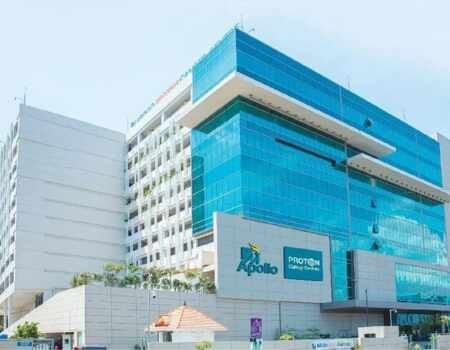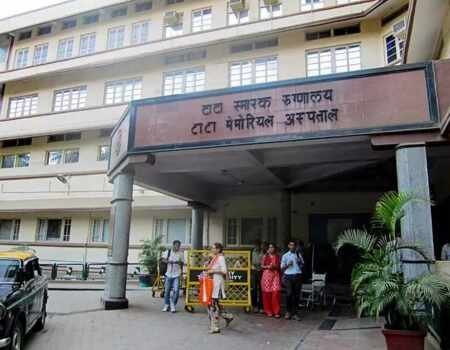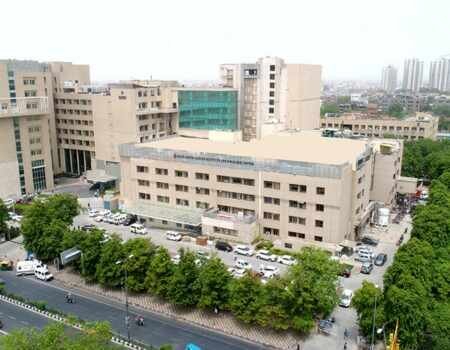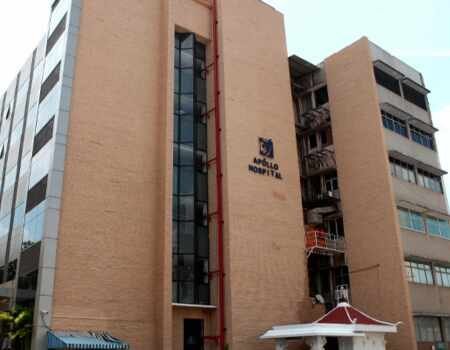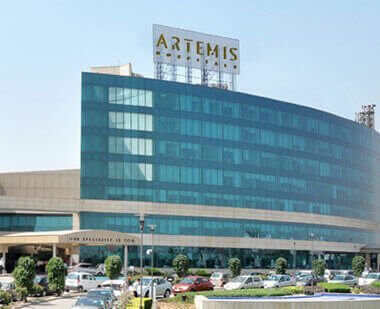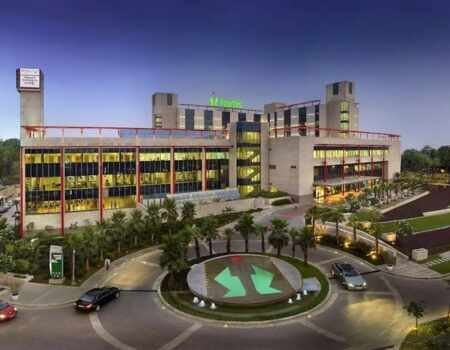Best Immunotherapy Hospitals in India
Immunotherapy in India represents significant advancements in the cancer domain. It is one of the most promising emerging treatments transforming the prognosis for several patients. Leveraging your immune system for targeting and destroying cancerous cells, immunotherapy provides durable remission and improved rates of survival across a variety of malignancies. With the rising global awareness of immunotherapy, India has been positioning itself at the forefront of this medical transformation.
List of Best Hospitals Offering Immunotherapy in India
With immunotherapy continuing to redefine the future of cancer research and care worldwide, India’s top Immunotherapy hospitals stand out from the crowd. These Immunotherapy hospitals are pivotal in innovation and centers of excellence. With their life-changing therapies and treatments, the hospitals stand as a ray of hope for patients seeking advanced cancer care.
There are several leading Immunotherapy hospitals contributing significant investments across cutting-edge infrastructure and research, with clinical expertise tailored around immuno-oncology. Indian hospitals now offer a comprehensive range of the best immunotherapy treatments:
- Immune Checkpoint Inhibitors: They target molecules like PD-1, PD-L1, and CTLA-4 to “remove the brakes” from the immune system, allowing it to attack cancer cells. These are approved for a wide array of cancers, including lung, melanoma, kidney, head and neck, gastric, and bladder cancers.
- CAR T-cell Therapy: An advanced and highly personalized therapy where a patient’s T-cells are genetically modified to target cancer cells. This is available at select top centers and is usually offered for certain leukemias and lymphomas.
- Monoclonal Antibodies: Laboratory-produced antibodies are designed to bind to specific antigens on cancer cells, either marking them for immune destruction or blocking their growth.
- Cancer Vaccines: Both preventive and therapeutic vaccines are being explored, some as part of clinical trials, aimed at priming the immune system to recognize and eliminate cancer cells.
- Adoptive Cell Transfer: Techniques like tumor-infiltrating lymphocyte (TIL) therapy are available in select research settings, harvesting and expanding a patient’s immune cells to attack the tumor more effectively.
- Combination Immunotherapy: Many patients benefit from immunotherapies combined with chemotherapy, targeted therapies, or radiation, improving response rates and survival.
Why Choose Immunotherapy in India?
India is rapidly emerging as a global leader in the domain of oncology, with several world-renowned cancer treatment hospitals. These hospitals are equipped with the latest and advanced state-of-the-art immunotherapy. Many of the best immunotherapy hospitals in India are NABH, NABL, and JCI-accredited. These accreditations ensure that patients receive care that meets the highest global standards for safety, quality, and outcomes.
Indian immunotherapy hospitals are leading the latest advances in the immunotherapy domain. To list a few of the services available, here are immune checkpoint inhibitors, monoclonal antibodies, cancer vaccines, and CAR T-cell therapy. The affordability of these treatment options in India is at a fraction of the price as compared to the services available across North America, Europe, or Australia. It is this cost-effectiveness that international patients seek quality healthcare services in India.
The cancer centers in India for Immunotherapy emphasize the concepts of molecular diagnostics and personalized medicine. These Immunotherapy hospitals are well equipped with advanced technologies such as sophisticated testing for PD-L1, MSI status, NGS (next-generation sequencing), and other biomarkers. Availability of these services enables oncologists to tailor immunotherapy regimens personalized to each patient’s requirements.
How Cancer Rounds Can Support Your Immunotherapy Journey in India?
- Personalized Treatment Planning – We begin by understanding your unique medical history and condition. Our team collaborates with leading doctors to develop a tailored treatment plan that aligns with your specific needs and preferences.
- Cost Estimates and Financial Guidance – Understanding the financial aspects of treatment is crucial. We provide transparent cost estimates for immunotherapy across various hospitals in India, helping you make informed decisions that suit your budget.
- Hospital Selection and Comparison – Choosing the right hospital is vital for successful treatment. We offer detailed comparisons of top hospitals offering immunotherapy
- Medical Visa Assistance – For international patients, we provide comprehensive support in obtaining medical visas, ensuring a hassle-free process. Our team assists with documentation, appointment letters, and liaises with Indian embassies to facilitate timely approvals.
Frequently Asked Questions (FAQs) about Immunotherapy in India
Q1. What types of cancer can Immunotherapy treat in India?
The best immunotherapy hospitals in India are equipped to treat the following cancer types with immunotherapy:
- Lung Cancer
- Head and Neck Cancers
- Melanoma
- Renal (Kidney) Cancer
- Bladder and Urothelial Cancers
- Liver Cancer
- Breast Cancer
- Colorectal Cancer
- Gastric and Esophageal Cancers
- Hodgkin’s Lymphoma
- Non-Hodgkin’s Lymphoma
- Prostate Cancer
- Ovarian Cancer
Q2. Who is eligible for Immunotherapy in India?
The eligibility criteria for immunotherapy in India are based on several factors for patients such as:
- Cancer Type & Stage: It is primarily given for certain advanced, metastatic, or recurrent cancers
- Biomarkers: Testing for markers like microsatellite instability (MSI), PD-L1 expression, or mismatch repair (MMR) status, and sometimes next-generation sequencing
- Previous Treatments: Patients not responding well to surgeries, chemotherapy, and radiation treatments
- General Health: Patients having issues with routine organ functioning, such as the liver, kidney, and heart, may not be eligible to tolerate the potential side effects of immunotherapy.
- Other Factors: Contraindications such as uncontrolled infections or autoimmune disorders may impact your eligibility for immunotherapy.
- Consultation Requirement: You should have a detailed discussion with your oncologist to reconsider your eligibility to undergo immunotherapy.
Q3. What are the potential side effects of Immunotherapy?
The common side effects, as outlined by the best immunotherapy hospitals in India, are:
- Common Side Effects: Fatigue, skin rash, itching, flu-like symptoms, colitis, diarrhea, and appetite loss.
- Immune-Related Adverse Events
- Cytokine Release Syndrome (CRS): Low blood pressure, sudden fever, and difficulty in breathing
- Neurotoxicity: Seizures, confusion, cognitive transformations
- Endocrine Gland Issues: Hypophysitis and thyroiditis
- Pneumonitis: Lung inflammation
- Hepatitis: Elevated levels of liver enzymes
Q4. How long does the Immunotherapy process take?
Typically, the entire process of immunotherapy will take around 2-4 weeks. Every 2-4 weeks, you will be called upon to undergo intravenous infusion, with each session lasting for hours. Some regimens may take as long as 6-8 months. Some may even go beyond 2 years, especially if your cancer is responding and your body is tolerating the treatment. Your oncologist will ask you to undergo scans and blood tests every 2-3 months to check your response to the treatment.
Q5. What is the success rate of Immunotherapy in India?
The success rate of immunotherapy treatment regimens in India varies significantly by cancer type. Typically, the success rates are:
- In advanced melanoma or Hodgkin’s lymphoma: 40-60%
- In non-small cell lung cancer (with high PD-L1): 25-45%
- In MSI-high colorectal cancer: ~40%
You May Be Also Interested In

Additional Resources
Our Impact
CancerRounds is making quality cancer care accessible to more people every day.




Why Choose India for Cancer Treatment?

World-Class Care
Skilled oncologists provide top-tier medical services

Affordable Treatment
Costs are significantly lower than in Western countries.

Comprehensive Packages
Hospitals offer all-inclusive plans covering surgery, stay, and aftercare.

Easy Accessibility
Well-connected airports and international flight routes.

Proven Success
High patient satisfaction and positive treatment outcomes
Thank You!
Your form has been submitted successfully.
